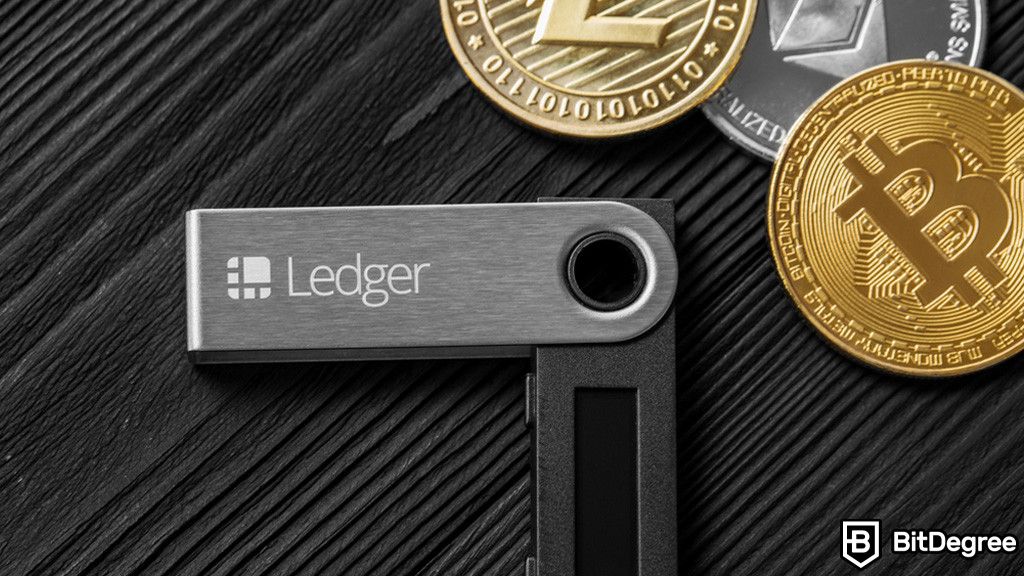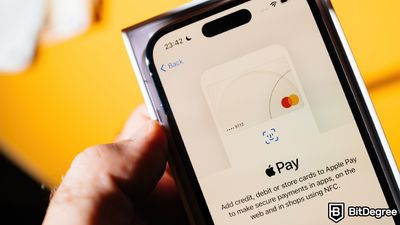Key Takeaways
- Hardware tokens provide superior security by storing private keys offline and requiring physical confirmation for transactions.
- Devices like Ledger Nano X, SafePal, and KeepKey are essential for securely managing cryptocurrency.
- Despite some challenges, the benefits of hardware tokens in crypto security outweigh the drawbacks.
Stop overpaying - start transferring money with Ogvio. Sign up, invite friends & grab Rewards now! 🎁
Crypto veterans know the importance of securing their assets. But with phishing attacks and exchange hacks on the rise, even the most vigilant investor might wonder if passwords and software wallets are enough.
You might have heard the term "hardware token" floating around and wondered, "What is a hardware token, and what is a hardware token used for?" Well, you're in the right place. Hardware tokens, also known as hard tokens, are physical devices designed to protect your digital assets from cyber threats.
In this article, I'll dive into the world of hard tokens and explore how they provide unmatched protection in the crypto ecosystem. We'll start by understanding exactly what a hardware token is and how it works. Then, we'll look at the crucial role these devices play in enhancing security.
I'll also showcase some popular examples of hard tokens in the crypto industry, including Ledger, SafePal, and KeepKey. Additionally, we'll discuss the advantages and limitations of using these devices. Finally, I'll share some insights into the future of hard tokens in crypto security.
So, whether you're a seasoned crypto enthusiast or just starting out, stick around to learn how hard tokens can safeguard your investments and give you peace of mind.

Did you know?
Subscribe - We publish new crypto explainer videos every week!
What is AAVE in Crypto? (Beginner-Friendly Explainer)


Table of Contents
- 1. What is a Hardware Token?
- 1.1. How Hardware Tokens Work
- 1.2. Why You Need a Hardware Token
- 2. The Role of Hard Tokens in the Crypto Ecosystem
- 2.1. Enhanced Security
- 2.2. Mitigating Risks
- 2.3. User Control
- 3. Examples of Hard Tokens
- 3.1. Hardware Wallets
- 3.2. Security Keys
- 3.3. Internet Banking Token
- 4. Benefits of Using Hard Tokens
- 4.1. Benefits of Hardware Tokens in the Crypto Ecosystem
- 5. Challenges and Limitations
- 5.1. Accessibility
- 5.2. Cost
- 5.3. Usability Issues
- 5.4. Compatibility
- 5.5. Risk of Physical Damage
- 6. Hard Tokens VS Soft Tokens
- 6.1. Security
- 6.2. Convenience
- 6.3. Price
- 6.4. Dependency on Devices
- 6.5. Recovery and Backup
- 7. Future of Hard Tokens in Crypto Security
- 8. Conclusion
What is a Hardware Token?
Let's start with the basics: what is a hardware token? Simply put, a hardware token, also known as a hard token, is a physical device used to enhance the security of your digital assets. Unlike software-based security measures, which can be vulnerable to hacking and malware, hardware tokens provide a more robust layer of protection by storing your private keys offline. This means your sensitive information is less exposed to online threats, making it significantly harder for cybercriminals to access your data.
Latest Deal Active Right Now:But what exactly is a hardware token used for? These devices are primarily used for two-factor authentication (2FA) and securing cryptocurrency wallets. When you use a hardware token for 2FA, you're adding an extra layer of security to your online accounts. Instead of just entering a password, you'll also need to use your hardware token to verify your identity. This drastically reduces the risk of unauthorized access, even if your password is compromised.
How Hardware Tokens Work
Now, let's dive into how these hard tokens work. At its core, a hardware token operates by generating a unique, time-sensitive code that you must enter alongside your password when logging into an account. This code changes every few seconds, making it extremely difficult for hackers to replicate. Most hardware tokens have a small screen that displays this code, ensuring that only the person with physical access to the token can see it.
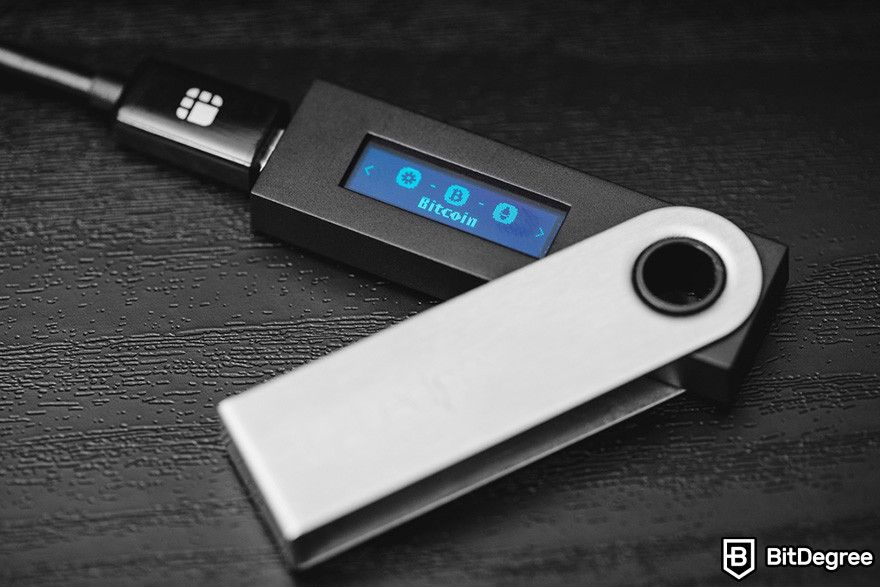
For securing cryptocurrency, hardware tokens like Ledger and SafePal go a step further. These devices store your private keys offline, away from your computer or smartphone. When you want to make a transaction, you connect the hardware token to your device, enter your PIN, and confirm the transaction on the token itself. This ensures that even if your computer is infected with malware, your private keys remain safe and sound on the hardware token.
Another fascinating aspect of hard tokens is their use of advanced cryptographic techniques. When you initiate a transaction or log into an account, the hardware token performs cryptographic operations internally, without exposing your private keys. This makes it nearly impossible for attackers to intercept your keys or mimic your token.
Why You Need a Hardware Token
So, why should you consider using a hardware token? In a world where cyber threats are becoming increasingly sophisticated, relying solely on passwords is no longer enough. Hard tokens provide a tangible, secure way to protect your digital assets and online accounts. By keeping your private keys offline and requiring physical access to the token for authentication, you significantly reduce the risk of unauthorized access.
The Role of Hard Tokens in the Crypto Ecosystem
Now that we've unwrapped the question of “What is a hardware token?”, let's explore its real-world role in the crypto ecosystem. As I mentioned earlier, they go beyond passwords and software tokens to provide that extra layer of peace of mind. We'll dive into how hard tokens enhance overall security, mitigate common risks associated with crypto holdings, and ultimately, put you back in control of your digital assets.
Enhanced Security
In the world of cryptocurrency, security is paramount. With digital assets being a prime target for cybercriminals, ensuring their protection is critical. This is where the hardware token shines. Unlike software-based solutions, which can be compromised by malware or phishing attacks, a hardware token provides an additional, robust layer of security. These physical token devices store your private keys offline, making it nearly impossible for hackers to access them remotely.
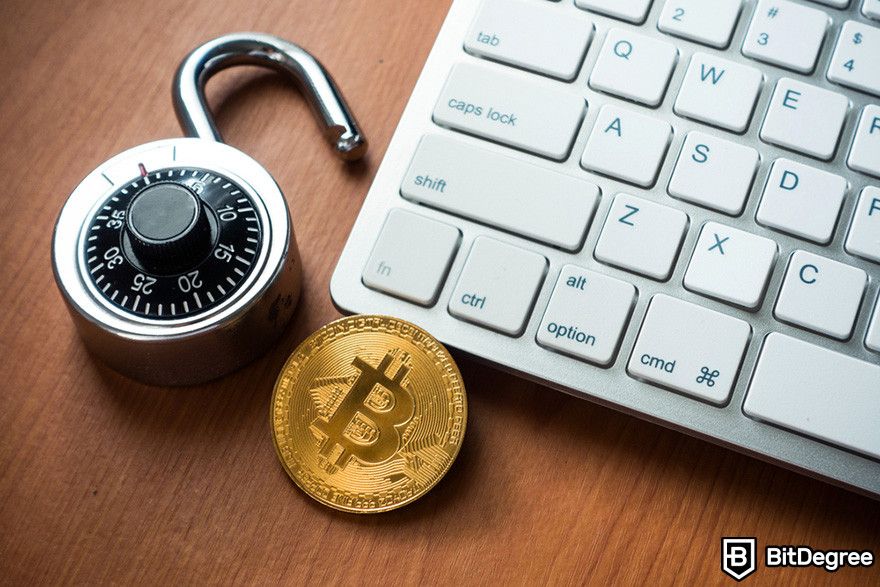
Hardware token authentication adds a significant barrier to unauthorized access. When you use a hardware token, you're required to physically confirm each transaction. This means even if a hacker gains access to your device, they can't complete a transaction without the hardware token. This enhanced security is a major reason why hard tokens are becoming increasingly popular among crypto enthusiasts and professionals alike.
Mitigating Risks
One of the biggest advantages of hard tokens is their ability to mitigate various risks associated with digital assets. Cyber threats are constantly evolving, and relying solely on software-based security measures can leave you vulnerable. By using hard tokens, you can significantly reduce the risk of phishing attacks, malware infections, and unauthorized access.
For instance, phishing attacks are a common method used by hackers to steal sensitive information. They often trick users into providing their login credentials through fake websites or emails. However, with hardware token authentication, even if you inadvertently provide your password to a phishing site, the attacker still won't be able to access your account without the physical token.

Malware is another significant threat. It can silently record your keystrokes or take control of your computer, allowing attackers to steal your private keys. Since hardware tokens store these keys offline, they remain secure even if your computer is compromised. This offline storage is a crucial aspect of how hard tokens mitigate risks in the crypto ecosystem.

Did you know?
Subscribe - We publish new crypto explainer videos every week!
Non-custodial Wallet: Why Do You Need It Right NOW


User Control
A fundamental principle in the world of cryptocurrency is maintaining control over your own assets. Hard tokens empower users by giving them full control over their private keys and transaction approvals. Unlike custodial services, where a third party holds and manages your keys, hard tokens ensure that only you have access to them.
When you use a hardware token, every transaction requires your explicit approval. This means you must physically connect the token to your device and confirm the transaction on the token itself. This level of user control not only enhances security but also aligns with the decentralized ethos of cryptocurrency.
Additionally, hard tokens are designed to be user-friendly. Despite their advanced security features, they are straightforward to set up and use. Most hardware tokens come with easy-to-follow instructions, and their interfaces are designed to be intuitive. This ensures that even users who are not tech-savvy can benefit from the enhanced security and control provided by hard tokens.

Hard tokens play a vital role in the crypto ecosystem by providing enhanced security, mitigating risks, and giving users full control over their digital assets. Their offline storage of private keys and requirement for physical confirmation of transactions make them an indispensable tool for anyone serious about protecting their cryptocurrency. As the digital landscape continues to evolve, the importance of robust security measures like hard tokens cannot be overstated.
Examples of Hard Tokens
Okay, let's shift gears and put the theory of hard tokens into practice with some real-world examples. We'll be exploring three common types: crypto hardware wallets, security keys, and even that handy token you might already be using for your online banking! Each offers a distinct security advantage, so we'll unveil how they work and which one might be the best match for your crypto security needs.
Hardware Wallets
When it comes to securing cryptocurrency, hardware wallets are among the most popular types of hardware tokens. These devices store your private keys offline, providing a secure way to manage your digital assets. Let's take a look at some of the leading hardware wallets available today:
- Ledger: Ledger is one of the most well-known brands in the hardware wallet space. Their devices, such as the Ledger Nano S Plus and Ledger Nano X, offer robust security features, including a secure chip and a custom operating system. These wallets support a wide range of cryptocurrencies and provide a user-friendly interface for managing your assets. With Ledger, you can rest assured that your private keys are safely stored offline, away from potential online threats.
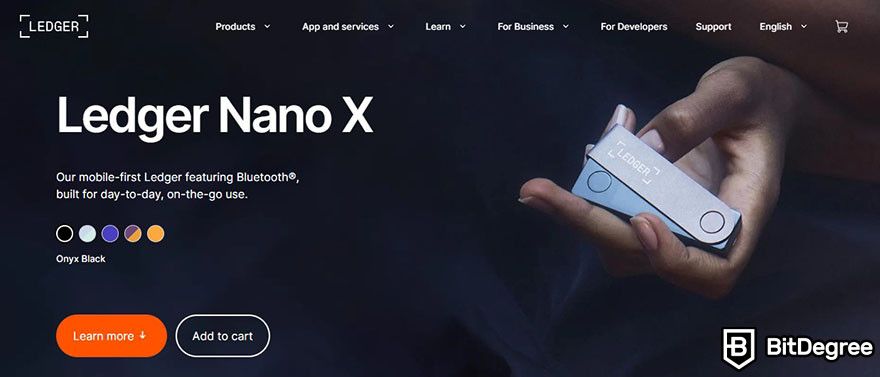
- SafePal: SafePal is another prominent name in the hardware wallet market. Their wallets are designed to offer high security at an affordable price. SafePal hardware wallets, like the S1 and X1, come with features like self-destruct mechanisms if tampered with and multi-layer security protocols. They also support a wide variety of cryptocurrencies and provide an easy-to-use mobile app for managing your assets. SafePal's emphasis on security and affordability makes it a great choice for both new and experienced crypto users.
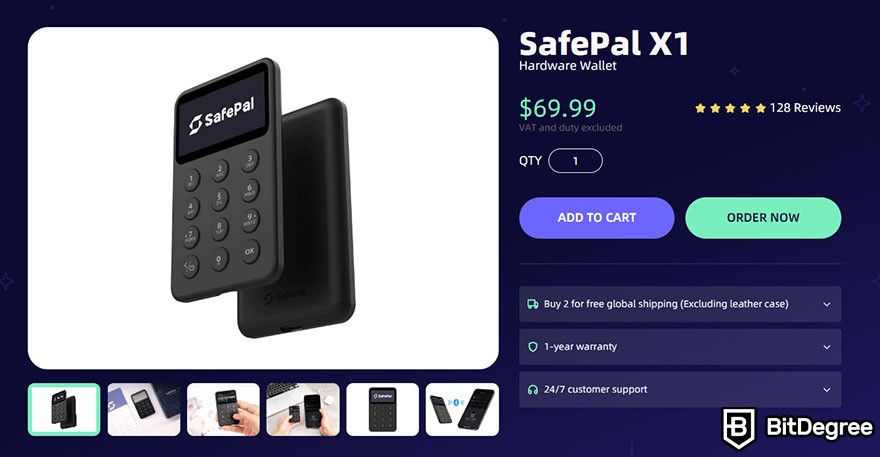
- KeepKey: KeepKey offers a sleek and simple design while providing top-notch security for your digital assets. This hardware wallet uses a large screen for transaction confirmations, making it easy to review and approve each step. KeepKey integrates seamlessly with popular software wallets like Electrum and Mycelium, ensuring a smooth user experience. By keeping your private keys offline, KeepKey ensures that your assets remain protected from online threats.
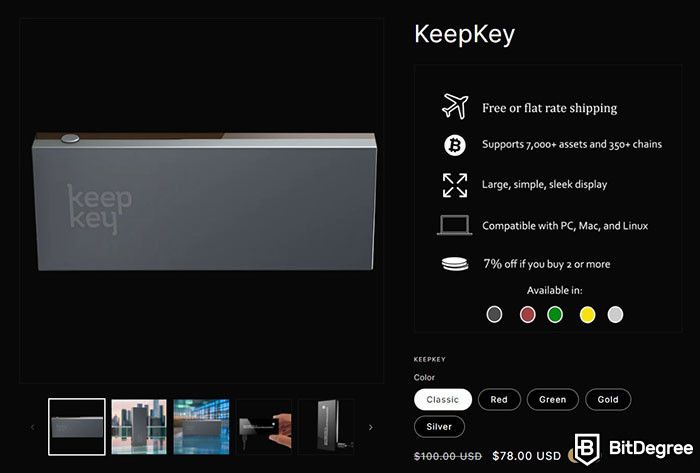
Security Keys
Security keys are another type of hardware token that plays a crucial role in enhancing online security. These physical token devices are primarily used for two-factor authentication, providing an additional layer of security for your online accounts.
YubiKey is one of the most recognized brands in the security key market. These small, portable devices support a wide range of authentication protocols, including FIDO2, U2F, and OTP. By requiring physical presence for authentication, YubiKey drastically reduces the risk of unauthorized access.
You simply plug the YubiKey into your computer or tap it against your smartphone to authenticate. This hardware token authentication process ensures that only you can access your accounts, even if your password is compromised.
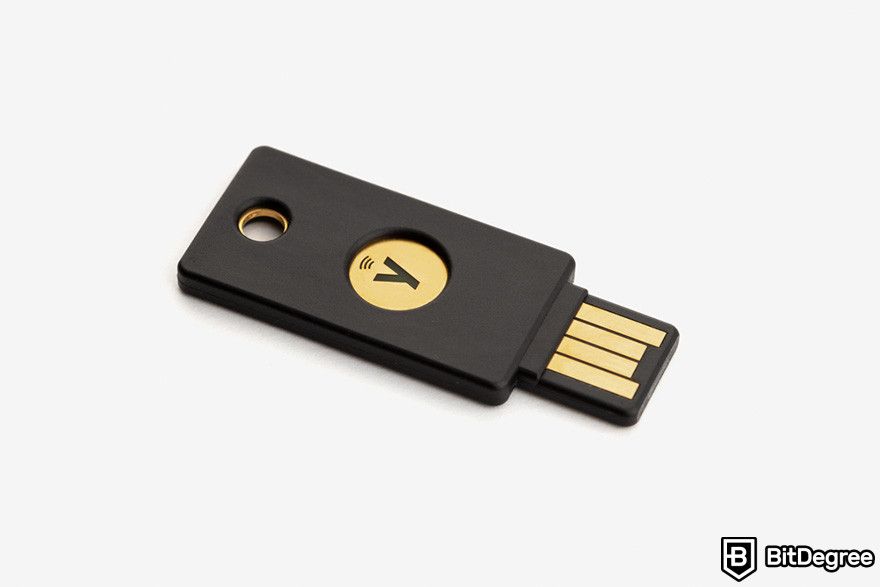
Internet Banking Token
While hardware tokens are widely used in the cryptocurrency space and for securing online accounts, they are also essential in the realm of traditional banking. Banks and financial institutions often provide customers with physical tokens to enhance the security of online transactions.
These token devices generate a one-time password (OTP) or code that you must enter when performing certain online banking activities. By requiring this additional layer of verification, internet banking tokens help prevent unauthorized transactions and protect your financial information. These tokens are especially useful for high-value transactions or accessing sensitive account information, ensuring that your bank accounts remain secure.
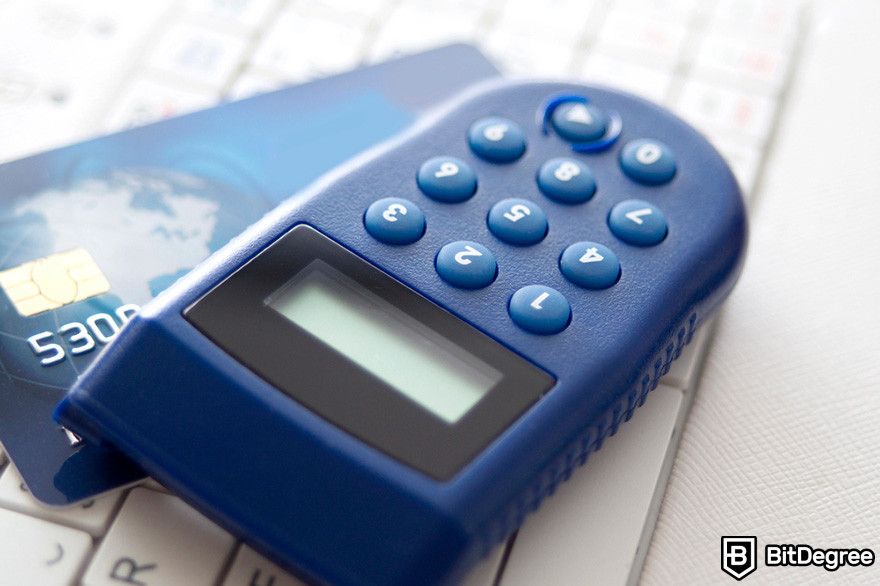
In a nutshell, hardware tokens come in various forms, each designed to meet specific security needs. Hardware wallets like Ledger, SafePal, and KeepKey offer robust security for managing cryptocurrency, while security keys provide an extra layer of protection for online accounts. Lastly, internet banking tokens add another level of security for online banking activities. By incorporating these hard tokens into your security strategy, you can significantly reduce the risk of unauthorized access and keep your digital assets safe.
Benefits of Using Hard Tokens
Hardware tokens offer a wide range of benefits, making them an essential tool for anyone serious about securing their digital assets. One of the primary advantages of hardware tokens is their ability to provide robust security through physical token devices. Unlike software-based security measures, which are susceptible to hacking, hardware tokens store your private keys offline, significantly reducing the risk of unauthorized access via cyberattacks[1].
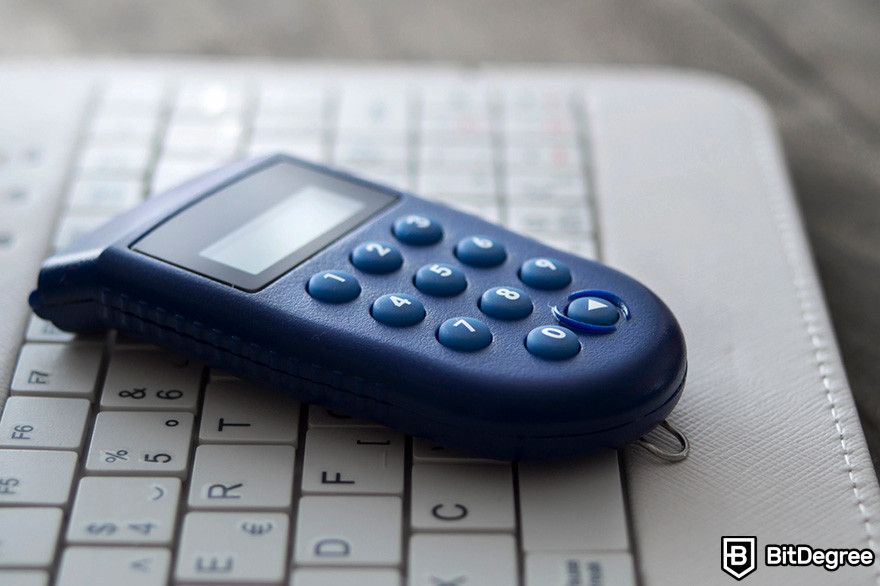
Another key benefit is the additional layer of protection provided by hardware token authentication. By requiring physical possession of the token to complete authentication, hardware tokens ensure that even if someone gains access to your password, they cannot access your accounts without the physical token. This method has been proven effective in preventing unauthorized access, even in cases where passwords have been compromised.
Benefits of Hardware Tokens in the Crypto Ecosystem
In the crypto ecosystem specifically, the benefits of using hard tokens are even more pronounced. The nature of cryptocurrency transactions, which are irreversible and often involve significant sums of money, makes security paramount. Hard tokens provide an unparalleled level of protection for your digital assets by keeping your wallet's private keys offline and requiring physical confirmation for transactions.
Consider the example of Ledger Nano X, a leading hardware wallet. By storing private keys on the Ledger device and requiring physical confirmation of transactions, Ledger ensures that your cryptocurrency remains secure, even if your computer or smartphone is compromised. This level of security is crucial for preventing theft and ensuring the safety of your investments.
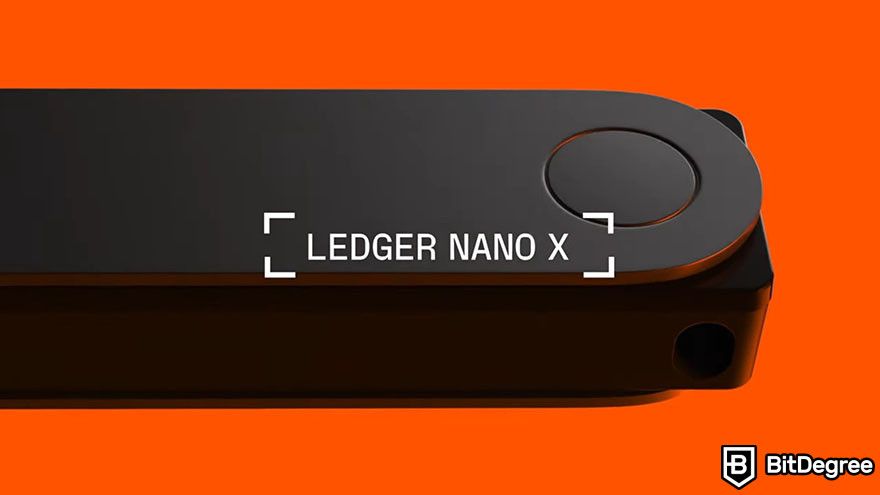
Another benefit in the crypto space is the enhanced user control provided by hard tokens. When you use a hardware wallet like SafePal, you have full control over your private keys and transactions. This means you are not reliant on third-party custodians, which can be a single point of failure. By maintaining control over your keys, you can ensure that your assets are only accessible to you.
Challenges and Limitations
All right, we've seen how different hard tokens can be your crypto security knights in shining armor. But before you rush out and grab one, let's talk about some potential challenges. Just like any security measure, hard tokens come with their own set of considerations. So, let's make sure you have all the info to decide if a hard token is enough to secure your crypto investment.
Accessibility
One of the primary challenges of using hardware tokens is accessibility. While these devices provide robust security, they can be difficult to obtain and set up, especially for those who are not tech-savvy. Understanding what is a hardware token used for is crucial, but the initial learning curve can be steep. For individuals who are not familiar with cryptocurrency or digital security measures, setting up and managing a hardware token can be daunting. This can be a significant barrier, particularly for older adults or those with limited technical skills.
Cost
Another limitation of hardware tokens is their cost. Unlike software-based security solutions, which are often free or low-cost, hardware tokens can be quite expensive. High-quality hardware wallets can cost anywhere from $50 to $150. This upfront investment can be a deterrent for individuals who are new to cryptocurrency or those who do not have a substantial amount of digital assets to protect. Additionally, if a user needs multiple tokens for different accounts or services, the cost can quickly add up.
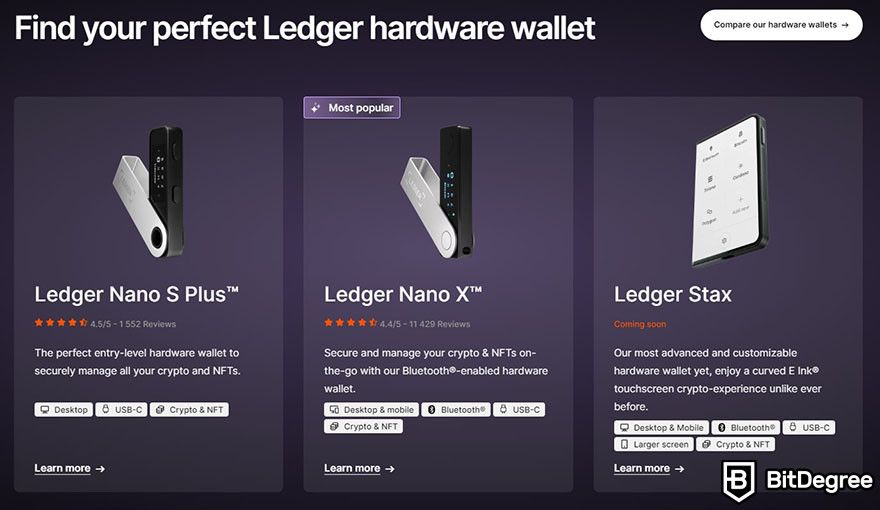
Usability Issues
While hardware tokens are designed to enhance security, they can sometimes be inconvenient to use. These physical token devices require you to have them on hand whenever you need to access your accounts or perform transactions. If you misplace your token or forget to bring it with you, you may be locked out of your accounts. This can be particularly problematic for frequent travelers or individuals who need to access their accounts from multiple locations. Moreover, the small size of these devices makes them easy to lose, adding another layer of potential frustration.
Compatibility
Compatibility is another challenge associated with hardware tokens. Not all services and platforms support hardware token authentication. While major cryptocurrency exchanges and financial institutions often support these devices, smaller or newer services may not. This can limit the usefulness of your hard token if you use a wide variety of platforms. Users may need to rely on multiple security methods, which can complicate their security strategy and reduce the overall effectiveness of their hardware token.
Risk of Physical Damage
Finally, the physical nature of hardware tokens presents its own set of risks. Unlike software solutions, which are not prone to physical damage, hardware tokens can be lost, stolen, or damaged. If a token is lost or damaged, recovering your digital assets can be a complicated and stressful process.

For instance, if you lose your hardware wallet without a backup of your private keys, you could potentially lose access to your cryptocurrency forever. This risk underscores the importance of taking additional precautions, such as creating and securely storing backup phrases.
As you can see, while hardware tokens offer unmatched security benefits, they also come with several challenges and limitations. Accessibility, cost, usability issues, compatibility, and the risk of physical damage are all factors to consider when deciding whether to use these token devices. Understanding these challenges can help you make an informed decision and better prepare for the potential downsides.
Hard Tokens VS Soft Tokens
Now that we've weighed the pros and cons of hard tokens, let's face it: they're not for everyone. In the ever-evolving world of crypto security, there are other options on the table. Enter soft tokens, digital alternatives that offer a different approach to safeguarding your crypto holdings. We'll break down the key differences between hard and soft tokens, helping you decide which security method best suits your tech savviness and overall crypto security needs.
Security
When it comes to security, hardware tokens have a clear advantage over soft tokens. A hardware token is a physical device that stores your private keys offline, making it much harder for hackers to access your sensitive information. Soft tokens, on the other hand, are software-based and often stored on your computer or smartphone. This makes them more vulnerable to malware, phishing attacks, and other online threats.
For example, if your phone is infected with malware, a soft token stored on that device could be compromised, whereas a hard token would remain secure.
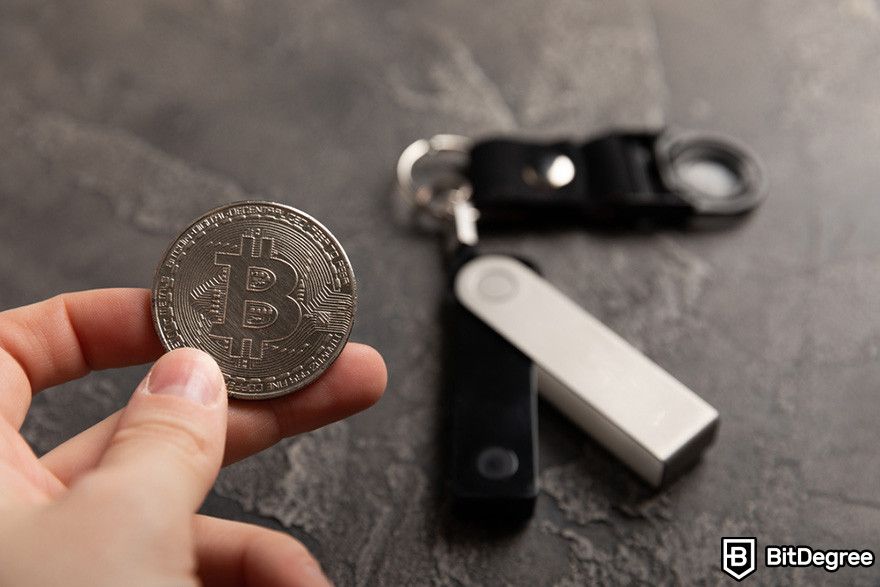
Convenience
Usability is another key difference between hard tokens and soft tokens. Soft tokens are generally more convenient because they are integrated into your existing devices, like your smartphone or computer. This means you don't need to carry an additional device around. However, the convenience of soft tokens comes at the cost of security.
On the other hand, hardware tokens, despite their superior security, can be less convenient. You need to have the physical token with you to access your accounts or complete transactions, which can be cumbersome if you frequently need access from different locations.
Price
Cost is a significant factor when comparing hard tokens and soft tokens. Soft tokens are typically free or very low-cost, as they are simply software applications that you can download and install on your devices. In contrast, hardware tokens involve an upfront investment, as I explained earlier. This initial cost can be a barrier for some users, especially those new to cryptocurrency or with limited budgets. However, the added security of a hardware token can make it a worthwhile investment.
Dependency on Devices
Soft tokens are inherently dependent on the devices they are installed on. If your smartphone or computer fails, you might lose access to your soft tokens, potentially locking you out of your accounts. Hardware tokens, being separate physical devices, do not rely on any particular computer or smartphone to function. This independence from other devices can be a significant advantage, especially if you need to access your accounts from multiple devices or if your primary device is compromised or lost.
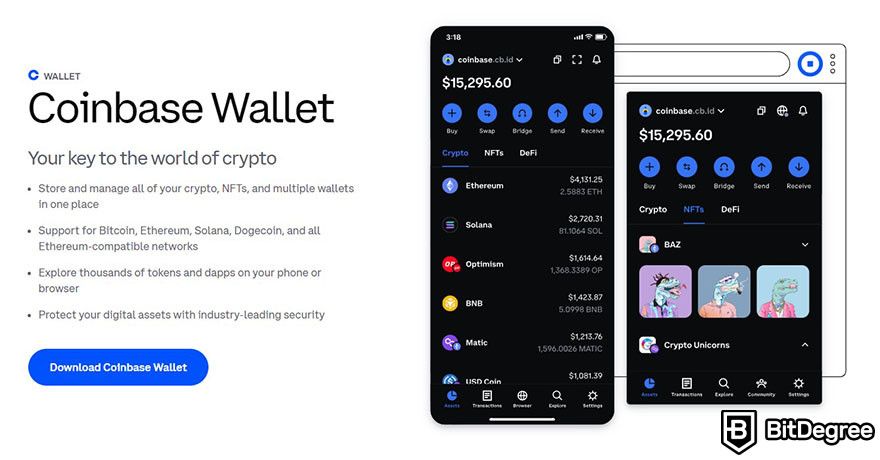

- Secure and reliable
- Accepts fiat currencies
- Lots of trading options
- Reputable exchange
- Accepts fiat currencies
- Offers various trading options

- Huge trading variety
- Regulation-compliant around the globe
- Fair trading fees
- Beginner-friendly
- A wide array of features
- Vast number of different crypto coins & tokens

- Beginner-friendly
- Secure
- Decent trading and withdrawal fees
- Crypto.com Visa Card
- Automated tools & bots
- Ecosystem synergy with CRO
Recovery and Backup
Recovery and backup options differ significantly between hard tokens and soft tokens. Soft tokens often provide easier recovery options, such as syncing across multiple devices or using cloud backup services. This can make it simpler to regain access if you lose your phone or reinstall the app.
Hard tokens, however, require careful handling of backup phrases or recovery seeds. If you lose your hardware token and do not have a secure backup of your recovery phrase, you could permanently lose access to your digital assets. This added layer of complexity requires diligent management but offers superior security.
Future of Hard Tokens in Crypto Security
The future of hard tokens in crypto security looks promising as technology continues to evolve. As more people enter the cryptocurrency space, the demand for robust security measures will only increase. For example, future hardware tokens may incorporate advanced features like fingerprint or facial recognition, further enhancing their security capabilities. The integration of biometric authentication with hardware tokens could provide an additional layer of security[2], making unauthorized access even more difficult.
Moreover, the development of more user-friendly and cost-effective token devices will likely increase their adoption. Innovations such as wireless connectivity and improved compatibility with various platforms can make hardware tokens more convenient to use without compromising security. The ability to integrate these tokens seamlessly into everyday digital interactions will be crucial for their widespread acceptance.

In the realm of regulatory impact, governments and financial institutions are recognizing the importance of robust security measures in the cryptocurrency market. As regulations become more stringent, the use of hardware tokens will likely become a standard practice for securing digital assets. This regulatory push will drive innovation and improvements in hard token technology, ensuring they remain at the forefront of crypto security.
So, in short, the future of hardware tokens in crypto security is bright, with ongoing advancements in technology and increased regulatory support driving their evolution. These token devices will continue to play a vital role in protecting digital assets, providing both security and peace of mind for users.
Conclusion
Let's recap! We started with a simple question: what is a hardware token all about? Now you know these handy devices, like Ledger, SafePal, and KeepKey, are like security fortresses for your crypto. They store your private keys offline, away from prying eyes and online attacks, and require physical confirmation for transactions.
Hardware tokens are a game-changer, significantly reducing the risk of online nasties like hacking and phishing. While there might be some hurdles like upfront costs and a slight learning curve, the peace of mind they offer is priceless. Plus, with tech advancements and growing regulatory support, the future of hardware tokens in crypto security is shining bright.
So, whether you're a seasoned crypto investor or just starting out, consider adding a hardware token to your security arsenal. It's a smart move for protecting your digital assets, not just crypto, but online accounts and other sensitive information too. By staying informed and taking control of your security, you can ensure your digital life stays safe and sound.
The content published on this website is not aimed to give any kind of financial, investment, trading, or any other form of advice. BitDegree.org does not endorse or suggest you to buy, sell or hold any kind of cryptocurrency. Before making financial investment decisions, do consult your financial advisor.
Scientific References
1. Katsikas S., et al: International Journal of Information Security;
2. Koç K. Ç., et al: Journal of Cryptographic Engineering.
